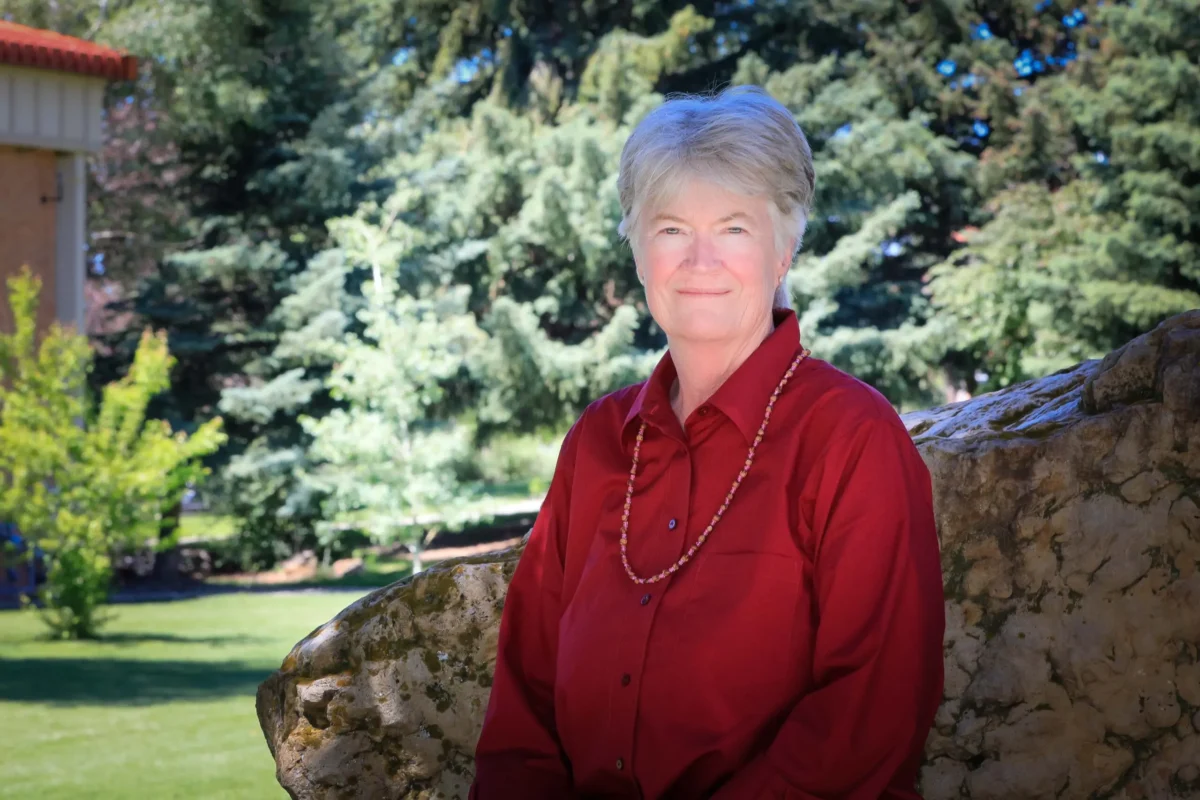By Kira Cordova

Dr. Jessica Young has worn many hats in her more than 25 years of experience at Western; professor of biology and environment and sustainability, director of the Master in Environmental Management (MEM) program, associate vice president for Academic Affairs, and later, interim president for Academic Affairs.
Most recently, Young (she/her) began serving as Western’s first ever provost and chief academic officer on July 1, 2022.
The provost is the second highest ranking administrator of an academic institution (after the president). In many cases (including Western’s), they are concurrently the chief academic officer, a role which oversees all of an institution’s academic programs.
“I facilitate student engagement in learning and developing a livelihood based on their values through enabling faculty and staff to challenge and inspire students,” explains Young of her new interim role at Western.
Young’s biography on Western’s website expands on her position, as well as her goals when she assumed the role: “The provost serves as the second-highest administrative position at Western, focused on internal operations, inclusive excellence, and academics. As provost, Young seeks to enable and support faculty and staff to deliver academic programs that meet all student’s needs, including those from marginalized groups whose inclusion in higher education enriches the institution and society.”
Dr. Young holds a B.A. from the University of California San Diego in Ecology, Behavior and Evolution and a Ph.D. from Purdue University in Population Biology and Behavioral Ecology.
She first discovered Western in 1988 as a graduate student studying Gunnison sage grouse — and went on to play a large role in identifying the beloved local grouse as a unique species, and in conservation efforts to preserve the species that now span more than two decades.

Now part of Western’s senior cabinet, Young began her teaching career at Western back in 1996. She was integral in launching what is now known as the Clark Family School of Environment and Sustainability (ENVS), as well as the MEM and Master’s of Science in Ecology degree programs. She has personally mentored graduate students since the MEM program began in 2014.
“There is a deep connection to all of my past work as to why I took on this role and what I bring to it. Western has supported me in every aspect of my career and encouraged me to grow and learn as I created a livelihood based on my [own] values,” said Young concerning how her many years as a researcher and professor will inform her new administrative role.
Young continued, “The university has helped me acquire the understanding of system processes, the critical importance of inclusivity and a sense of belonging, and the need to seek data, information, collaboration, and varied perspectives during decision-making. Importantly, it has taught me student engagement in learning can be done in collaboration with real stakeholders, future employers, and in service of societal needs.”
Asked whether her role as interim provost will become permanent, Dr. Young explained that there will be a search conducted for a non-interim provost in the near future, adding “The State of Colorado has a requirement that all state jobs that are permanent require a search, [and] President Baca will launch a search later this fall for the permanent role.”
President Brad Baca, a long-time Western administrator, also took office on July 1 after a months-long presidential search.
“Creating a new position at Western encourages innovation and creativity in how we envision supporting students with different administrative roles and structures because it disrupts the sense that we must do things the same way we have in the past,” Young says of the opportunities that accompany being the university’s first provost.

“Challenges before us include an uncertain future as climate change, changing cultural norms, and the pandemic disrupt economic and ecological systems in a way that stresses us as individuals in an environment of higher costs for housing, education, and cost of living,” she continued, adding, “As Provost, I think about the importance of access, inclusivity, and student and faculty mental, emotional and physical health every day and seek ways to increase them all.”
Regarding her vision for Western’s academic future, she stressed the importance of traditional education mechanisms, adding, “I view that the core of our undergraduate opportunities will continue to be residential, immersive education.”
For Young, retaining a sense of place within the student experience is critical to the college experience, and to Western’s identity.
“We will continue to consider and implement unique opportunities and pedagogies for [both] undergraduates and graduate students that are deeply embedded in our sense of place and positioning in the complicated and wonderful human and ecological communities of the Rocky Mountains,” she explains.
Yet Young allows room for flexibility, offering “Accelerated degree attainment, meaningful and engaged learning, and integrating liberal arts into professional fields are all pathways to opportunities that [can work to] increase student access at different educational stages.”
Asked about the university’s greatest strengths, Dr. Young highlights the quality of the faculty and staff, before going on to share her gratitude for her time at Western.
“I am privileged to be a small part of changing people’s lives — sometimes indirectly as an administrator — and sometimes directly as a faculty mentor. After 25 years of being at Western, there are a plethora of alumni who connect to me and I am so proud to know them and see the difference they make in the world.”

